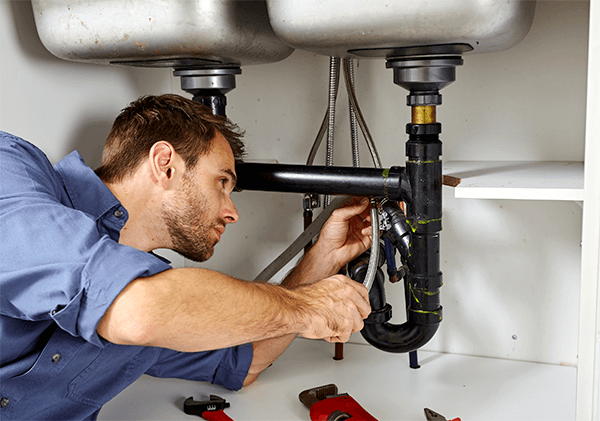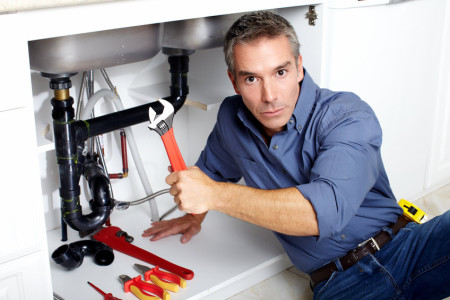Ways to Manage Critical Plumbing Problems Before Specialist Help Arrives
Ways to Manage Critical Plumbing Problems Before Specialist Help Arrives
Blog Article
Each person has got their personal views involving Expert Tips for Managing a Plumbing Emergency Until Help Arrives.

Pipes emergency situations can strike at any moment, triggering tension and potential damages to your home. Whether it's a ruptured pipeline, a blocked drain, or a leaky tap, recognizing exactly how to handle the situation till an expert plumber arrives can conserve you from additional problems. This article gives crucial emergency situation plumbing tips to aid you alleviate damage and regain control throughout a plumbing crisis.
Switch off the Water System
The first step in any kind of plumbing emergency situation is to shut off the water system. For localized issues, such as a dripping tap or commode, switch off the valve near the component. When it comes to a major leak or ruptured pipeline, locate your home's main water shut-off shutoff and transform it off right away. Knowing the location of these shutoffs in advance can conserve beneficial time throughout an emergency.
Shut Off Your Hot Water Heater
In specific emergency situations, such as a burst pipe, it's important to turn off your water heater. This protects against getting too hot or damage to the device when water stops flowing. Switch off the power supply to the water heater (electric or gas) and allow it cool down to stay clear of prospective hazards.
Momentarily Stop a Ruptured Pipeline
A burst pipeline can result in significant water damages in minutes. To alleviate the issue:
Call a specialist plumbing quickly to attend to the trouble permanently.
Have an Emergency Situation Plumbing Package
Prepare a basic pipes emergency set to manage small issues efficiently. Your package should include:
Having these devices on hand can make a significant difference in your capability to handle emergency situations.
Unclog Drains Pipes Securely.
A stopped up drainpipe can be an irritating and unpleasant concern. Below's how to tackle it:.
If these methods don't work, avoid utilizing extreme pressure, as it might aggravate the clog.
Handle Overflowing Toilets.
An overruning bathroom can create immediate turmoil. Below's what you must do:.
Address Tiny Leakages with Short-lived Repairs.
Little leaks can quickly become substantial troubles if left untreated. Utilize these short-term fixes till specialist assistance arrives:.
While these fixes aren't irreversible, they can assist decrease water loss and damage.
Manage Frozen Pipes Very Carefully.
In cooler climates, icy pipes are an usual emergency situation. If you suspect an icy pipeline:.
Know When to Call a Professional.
While quick fixes can assist momentarily, certain plumbing concerns require immediate expert focus. Call a plumbing if:.
Quickly calling a specialist ensures the issue is fixed properly and protects against additional issues.
Prevent Further Damage.
Taking fast activity to minimize damage can conserve you money and time in the long run. Here's exactly how:.
Conclusion.
Pipes emergency situations can be overwhelming, but with the right knowledge and tools, you can handle the circumstance successfully till aid gets here. By switching off the water system, resolving tiny leakages, and making use of short-lived solutions, you can decrease damages and maintain your home safe. Bear in mind, these ideas are momentary options; constantly seek advice from an accredited plumbing technician to manage the source of the issue. Preparation and quick thinking are your ideal allies in any kind of pipes emergency situation.
8 Helpful Tips for Managing Plumbing Emergencies at Home
If your plumbing system hasn’t failed once, wait for it because almost everyone has a story to tell. Sometimes, it could be simple emergencies such as a leaking pipe, a blocked cistern, or even a big burst pipe. In situations like this, you need to have some handy tips to save you some money and from possible damages.
Take care of minor issues early.
Sometimes, you could have avoided an emergency by taking proactive measures while it was still early. Some major plumbing emergencies can be a result of an ignored minor issue. We recommend that you have items like plumbing tapes and other related items. A plumbing tape can allow you to manage minor leaks before the plumber arrives.
Cut off the water supply.
This tip is essential in almost any type of leakage problem. For problems like minor leakages in the toilet or kitchen, turn off the supply that takes water to the affected pipes. If the leakage is a major pipe, you must shut off the supply valve to the entire building. This will help you avoid flooding your home and neighbors if you share a flat.
Know your plumbing system
Folks typically move into a new apartment without understanding the water supply around the building. This can prove disastrous if a water emergency arises and the plumber is far away. The previous tip will prove useless if you don’t practice this one. More importantly, know where your water shut-off valve is located – you’ll need that knowledge to prevent potential home floods.
Have some common handy tools
There are lots of plumbing emergencies that you can handle without hiring a plumber. That’s why you must keep some tools available always. Some tools that you can use to fix simple plumbing emergencies easily include plumbing tapes, screwdrivers, thread seal tapes, plungers, pliers, tape measures, and rubber gloves.
Insulate your pipes from cold
You’ll save yourself from many plumbing expenses if you protect your water pipes from the cold. This is because of the harmful effects that cold weather can have on your pipes. During winter, your pipes can burst from being overly expected to freezing temperatures. So, make sure insulators are there to keep the pipes working correctly.
Avoid practices that will clog your toilet.
Many people indulge in practices that can damage the plumbing system of the entire building. One of these is when they use their toilet to dispose-off garbage. They flush all kinds of things, such as paper towels, bandages, hairs, female sanitary products, etc., down the toilet. This will block your toilet in the long run, incurring unnecessary expenditures. Dump such waste in the trash instead.
Check your dials regularly.
Sometimes, there could be leakages in your home without noticing them in time. So, constantly monitor your water meter dial. If the dial is reading when there is nobody using water, this is an indicator that there is leaking. Check for leaks immediately. Call a plumber as soon as possible if you can’t find any.
https://www.constructionplacements.com/8-helpful-tips-for-managing-plumbing-emergencies-at-home/

I came across that write up on What to Do During a Plumbing Emergency while doing a search on the web. Are you aware of anybody else who is involved in What to Do While Waiting for an Emergency Plumber? Please feel free to promote it. I take joy in your readership.
Explore Now Report this page